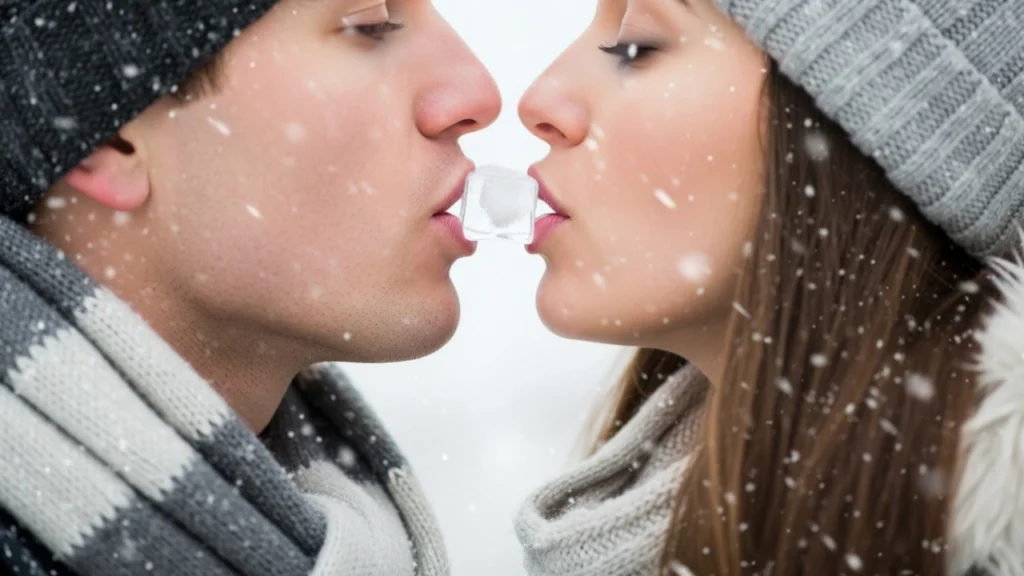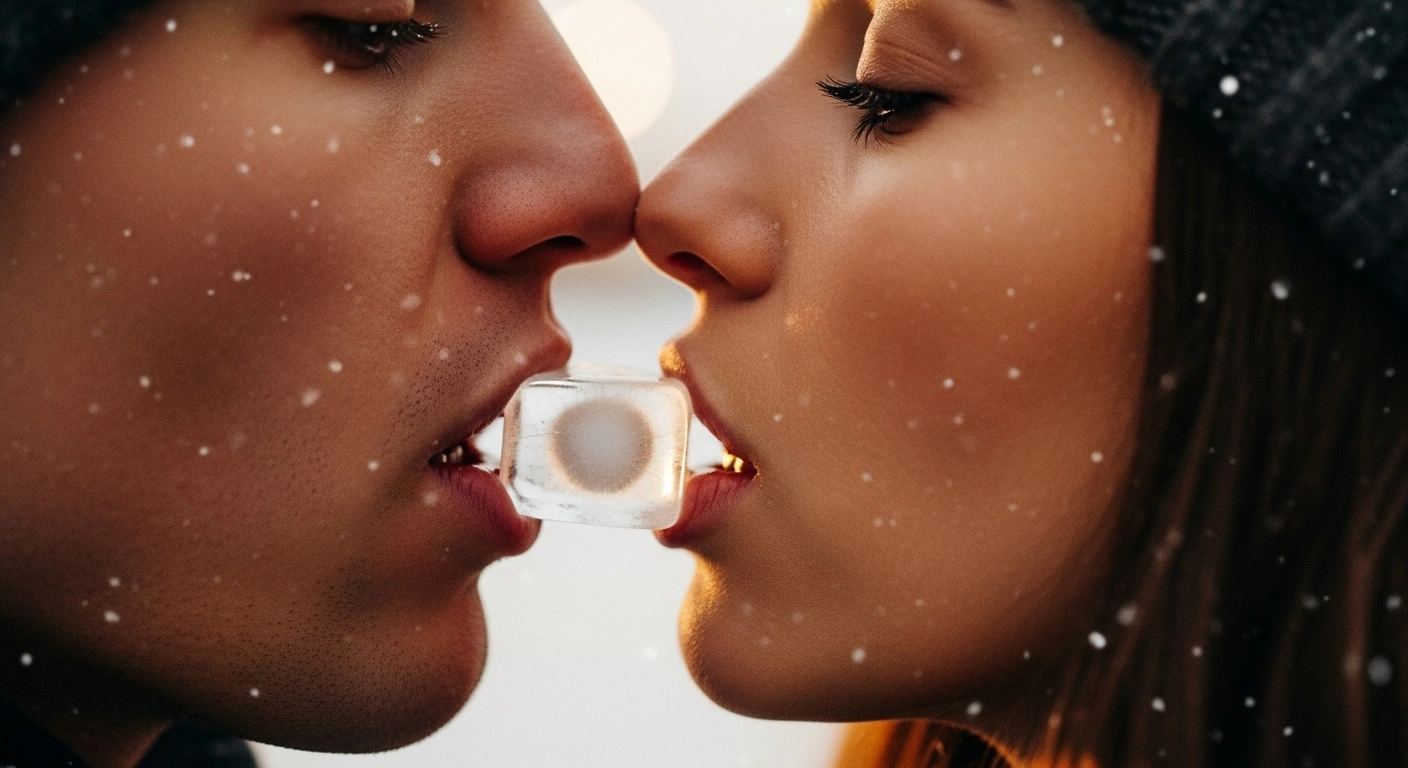If you’ve ever come across the term “snowball kiss” while scrolling through TikTok or chatting with friends, you’re not alone in wondering what it actually means. Despite its innocent-sounding name, this phrase has sparked viral curiosity, with videos titled “don’t Google this” gaining millions of views.
But what is a snowball kiss? In this guide, we’ll break down the definition, cultural context, TikTok origins, and safe conversation practices—without any inappropriate language or graphic details. This article is designed to be clean, informative, and safe for all audiences.
What Is a Snowball Kiss?

At its core, a snowball kiss refers to a slang term that gained traction online, particularly through social media platforms like TikTok and Reddit. While the exact origin varies by source, the phrase usually describes a fictional or humorous “kissing challenge” that users react to with shock, confusion, or memes.
On TikTok, it has become part of the “don’t Google this” genre of trends—phrases that sound innocent but generate exaggerated reactions for comic effect. The ambiguity of the term “snowball kiss” makes it meme-worthy, with people pretending to faint or run away after hearing it.
✅ Key takeaway: The term is more of a viral inside joke than an actual activity, and its popularity largely comes from the mystery and humor around its meaning.
Why Is It Trending on TikTok?
The TikTok community thrives on trends that mix mystery, comedy, and reactions. The snowball kiss trend fits perfectly into this category for several reasons:
- “Don’t Google This” Format: Users upload clips with captions like “POV: You just Googled what a snowball kiss is 😳” to grab attention and spark curiosity.
- Jump Cuts & Reaction Memes: Many creators use quick cuts to fake fainting or dropping their phone to build drama.
- Stitches & Duets: The trend grew rapidly as others stitched these videos with their own comedic takes.
- Confusing Name: The word “snowball” suggests something wintery or innocent, adding to the contrast when viewers discover it’s something different.
The keyword “what is a snowball kiss TikTok” continues to rank highly due to the explosive search interest it generated.
How Did the Phrase Enter Online Culture?
The term “snowball kiss” has been around in fringe internet slang since the early 2000s, often appearing in forums and urban dictionary-style sites. But it was TikTok that made it mainstream, especially among Gen Z users.
The trend taps into:
- A culture of shock-value humor,
- The popularity of reaction-based content,
- And the appeal of memeable misunderstandings.
Is the Snowball Kiss Real or Just a Joke?
For most people, the snowball kiss exists only as a trend or internet joke. There’s little to no evidence of it being a common practice in real life. Think of it more as a curiosity-driven conversation starter—not a typical romantic gesture.
This is why so many users search for:
- “what is a snowball kiss meaning”
- “snowball kiss example with people”
The ambiguity and playfulness are what keep it going.
Why Is It Considered Taboo or Gross?
The shock behind the phrase often stems from the contrast between its name and the meaning some users assign to it. While many people think it’s just playful or silly, others may find it uncomfortable or taboo due to cultural, generational, or personal reasons.
Some reasons include:
- Taste and texture concerns (real or imagined),
- Hygiene associations,
- Online overreactions that amplify gross-out humor,
- Or simply being unfamiliar with internet slang.
Is a Snowball Kiss Safe?
If someone were to treat the idea literally, it would involve the exchange of fluids—like passing an ice cube or a sip of cold drink during a kiss, as some TikTok videos jokingly depict. In this context, people ask:
- “Is snowball kissing safe?”
- “Can you get diseases from snowball kissing?”
For clarity:
- If treated as just a playful ice cube kiss, it’s safe and innocent.
- If interpreted beyond that (as some online sources do), health professionals would recommend good hygiene, consent, and open communication between partners.
Still, for most, this trend remains purely performative and comedic.
Common Misconceptions About Snowball Kisses
The name creates confusion. Here are a few popular myths and misconceptions:
| Misconception | Clarification |
|---|---|
| It’s a romantic winter kiss | It’s actually slang with a layered meaning |
| Everyone does it | No, it’s mostly an internet joke |
| It’s always inappropriate | Depends on context—most people just laugh at it |
| It started recently | It existed in forums long before TikTok made it viral |
FAQs About the Snowball Kiss
What is a snowball kiss TikTok?
It’s a viral term that TikTok users use for comic shock value. Most videos involve over-the-top reactions when someone claims to learn what it means.
Is snowball kissing safe?
In the TikTok context, yes. If interpreted more literally, it depends on hygiene, consent, and mutual understanding.
Why is the snowball kiss considered gross?
Because of how some internet definitions describe it. For most people, the combination of bodily fluids in that context is off-putting.
Can you get diseases from snowball kissing?
If practiced as described in some online forums (not TikTok), there is a theoretical risk of bacteria transfer. But for playful versions involving just cold drinks or ice cubes, the risk is negligible.
What is the snowball kiss and rainbow kiss meaning?
They’re both slang terms that gained notoriety online. While “snowball kiss” became meme-fueled, the “rainbow kiss” is also an internet phrase with layered interpretations. Both are commonly used in “don’t Google this” style jokes.
Final Thoughts: The Real Meaning Behind the Hype
The snowball kiss is a perfect example of how TikTok, humor, and internet mystery combine to create viral trends. It’s funny, confusing, and meant to spark curiosity—not real-life action.
So the next time someone says “don’t Google what a snowball kiss is,” you’ll know: it’s not about snow or a real kiss—it’s about how a single phrase can take over the internet through pure digital imagination.










